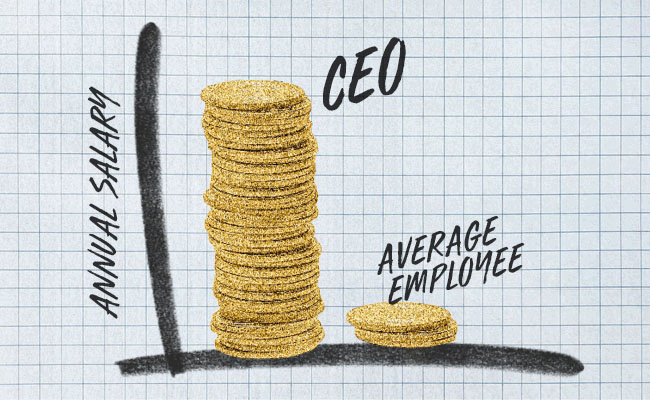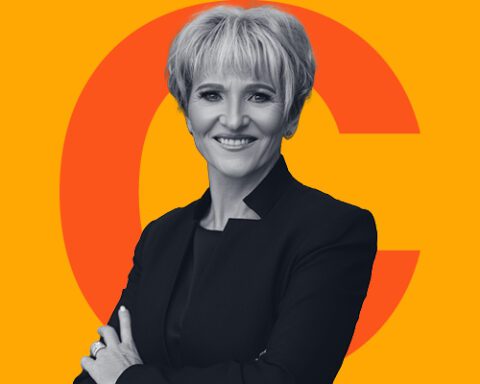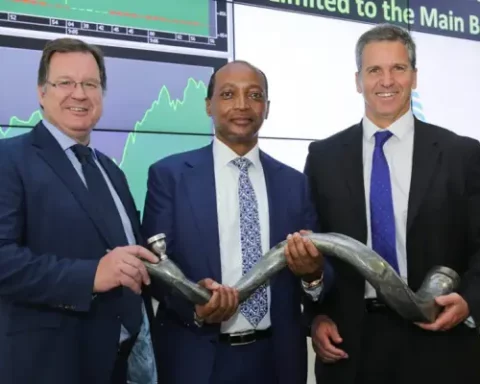It’s ironic that Ian Moir’s near destruction of Woolworths may have helped to bump up the remuneration package paid to Shoprite’s Pieter Engelbrecht, as well as every other executive in the retail sector. Indeed, in the world of executive pay, it could be said that nothing succeeds quite like failure. And Shoprite’s just-released annual report is proof of that with the introduction of yet another executive incentive.
In financial 2023 Woolworths CEO Roy Bagattini received a record R122.5m package because Moir had made a value-destroying acquisition in Australia a few years earlier and it turned out neither he nor the Woolworths group had the capacity to convert it into anything other than a profit-draining dud.
For a few years more than they should have, the Woolworths board held onto the desperate hope that things would come right. Eventually, in 2019, Moir exited Woolworths with R44m, as well as a generous restraint-of-trade deal. And in early 2020, at the same time that we were all learning about a new deadly plague, Bagattini took the helm at Woolworths.
In the real world, you can’t even come close to making the sort of astronomical blunders that the CEO of a large, listed entity can make; you will very likely be sent packing if you stuff things up – even a little. But in the world of executive pay, it’s far from inevitable you will lose your job. Even if you do, it will be a low-key affair, and as you depart the crumbling edifice of the once-great institution you led, you will be given some sort of golden handshake.
And then, because everyone is wary of being associated with a failure, and the damage wreaked may have been irreparable, the board will have to offer all sorts of enticements to get a halfway competent replacement. That enticement invariably comes in the form of a share-based award. Unfailingly, those shares are awarded at the knock-down price caused by the destruction wrought by the previous CEO.
When Bagattini took the top job at Woolworths in February 2020 he was granted 1.4-million Woolworths shares, which were valued at R54.25m at the time, when the share was trading at R37.87. It wasn’t just previous mismanagement that knocked the share price, Covid also took a huge chunk out of it. Last year, as Woolworths appeared to have turned the corner, the share price bounced and the “fair value” of the vesting portion of his share awards bumped up Bagattini’s remuneration by R67m, taking it to R122.5m. However, in 2024 the weakening Woolworths share price meant that the portion of vesting shares awarded back in 2020 were valued at a more modest R30.4m. Hence Bagattini’s 2024 package came to a more modest R65.3m. Mind you, a nice package for a still-struggling retailer.
The remuneration gravy train
Protea Capital Management’s Jean Pierre Verster tells Currency it is one of the grim consequences of disclosure in a world populated by very competitive alpha personalities. “With benchmarking, everyone demands to be in the high percentiles, and we get what Warren Buffett or Charlie Munger referred to as ‘ratchet, ratchet and bingo’.” Bingo is a pretty good description of Bagattini’s R122.5m winnings.
But it never seemed right that Bagattini should have bagged R122.5m in 2023 while Engelbrecht received just half of that, with a package valued at R64.7m. Shoprite, after all, is the largest grocery retailer not just in South Africa but in Africa. It has a market capitalisation of R172bn, annual turnover of R240bn and it churns out profit of R6.2bn a year.
Woolworths’ stats are not quite as impressive: annual turnover is R76.5bn and profits are not nearly as consistent as those pumped out by Shoprite. In financial 2024 profit had slumped to R2.6bn from R5.1bn the previous year, but back in 2018 it reported a loss of R3.5bn followed up by a loss of R1.1bn in 2019. Its current market cap is R66bn, which is about the same level it was in mid-2018, and considerably lower than the highs of about R100bn it reached in late 2015, shortly after Moir completed the Australian acquisition that was so roundly endorsed by Woolworths’ shareholders.
Sasfin’s Alec Abraham has some reservations about the executive remuneration gravy train but rather phlegmatically accepts that’s the world we live in. And, he tells Currency, you have to consider the rewards in the context of the shortage of available skills and the circumstances. “No doubt, Bagattini is shrewd and was evidently a good negotiator, but he brought extensive international experience and knowledge, which must have impressed the board at a particularly difficult time,” says Abraham.
Recall that late last year, on his return to Pick n Pay, Sean Summers was paid an unremarkable R10m for the six months remaining in financial 2024. But he was also awarded 4-million Pick n Pay shares, which will vest if certain performance targets are met over the coming three to five years. When the share price plunged to R17 earlier this year, it didn’t look like such a great deal for Summers, but if the Boxer listing is successful and the company can stop leaking market share, then things will begin to look up. Summers’s 2024 remuneration package was in addition to the R25m paid to outgoing CEO Pieter Boone for his six-month stint. That R25m included a R16m termination fee.
Over at Spar, yet another struggling retailer, the board’s decision to appoint an insider to sort out a series of calamities caused by the former leadership team could prove to be an inspired move, or not. But it has kept that company’s remuneration packages more in tune with a company under pressure. The group’s remuneration report even cautions that the board has the discretion not to pay bonuses if cash flow is too tight, which is starkly at odds with the R25m former CEO Brett Botten received on his way out.
But let’s get back to the costly consequences of replacing value-destroying CEOs.
The R122.5m awarded to Bagattini in 2023 was quickly picked up by remuneration committees across the JSE and fed into their benchmarking exercises. And so, for financial 2024, Engelbrecht is back on top with a package valued at R83.3m.
Perhaps more significant is Shoprite’s introduction of a once-off long-term incentive called the Executive Super Stretch Incentive, presumably aimed at ensuring its executives are always the best paid.
The remuneration committee explains that the scheme is over and above the current suite of multiyear incentives and “is intended to strengthen the alignment with shareholders by retaining and motivating a select group of senior executives who are key to the delivery of the group’s long-term strategy”.
Yet this “once-off” bonsella, which will vest in 2026, 2027 and 2028, will in turn be fed into future benchmarking exercises.
Verster says the challenge is about human nature rather than finance. He reckons the time has come to attempt something never tried before: call the bluff of these very scarce executives. “Don’t give the requested increase, if they leave someone else will step up,” Verster says, but admits it’s got risks. Particularly as boards are often captured by their executives as well as remuneration consultants.
But until something like Verster suggests is implemented, one thing is certain: executives of listed companies will continue to collect hefty payouts no matter what happens, while shareholders carry all the risks.
Top image: CEO. Collage by Currency










